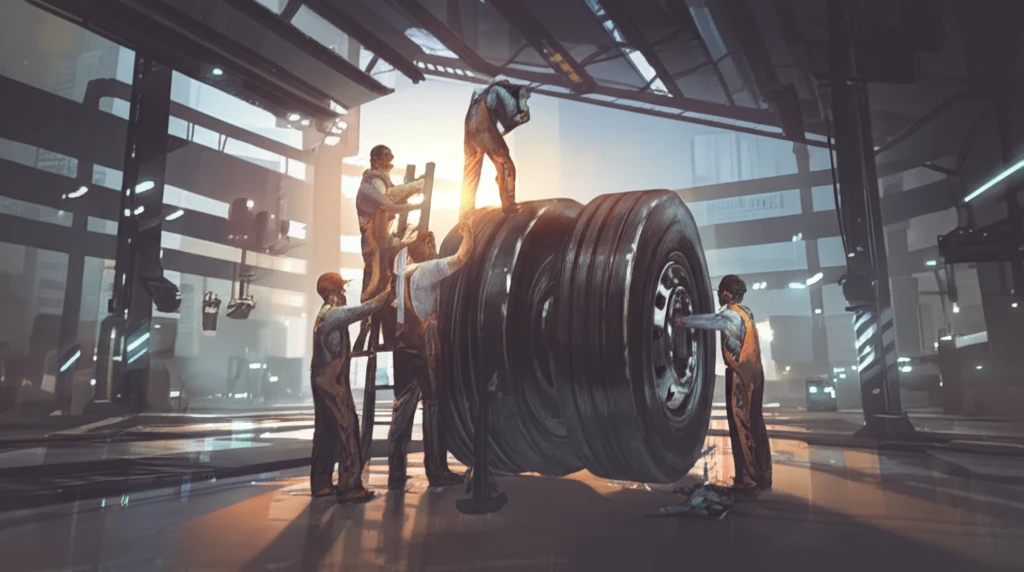
Teamwork Triumphs: How Overcoming Workplace Challenges Together Boosts Employee Retention
"Discover the surprising power of shared hardships in building stronger bonds and improving employee loyalty, even in tough industries like trucking."
In today's competitive job market, employee retention is a critical concern for businesses across all sectors. While conventional wisdom suggests shielding employees from negative experiences, a new study reveals a counterintuitive truth: shared hardships, when managed effectively, can actually strengthen team bonds and boost employee loyalty. This article explores these findings, focusing on the unique challenges and opportunities within the trucking industry, and offers practical insights for fostering a more resilient and committed workforce.
The trucking industry, known for its high turnover rates, provides a compelling case study for understanding the dynamics of employee retention. With drivers often working remotely and facing numerous on-the-job challenges, fostering a sense of connection and shared purpose is essential. Research indicates that when trucking firms and their drivers face equipment-related issues or operational difficulties together, the experience can lead to increased commitment and reduced turnover.
This article dives into the groundbreaking research that uncovers how these 'negative shocks,' when aligned with both company and employee incentives, create opportunities for communication, problem-solving, and mutual support. By examining real-world data and sentiment analysis, we'll reveal how companies can turn potential setbacks into powerful moments of team building and enhanced employee retention.
Turning Challenges into Opportunities: The Silver Lining of Workplace Shocks

Jarring events that cause employees to reflect on their job and career are known as "shocks." While these shocks can be negative, substantial research shows that negative shocks can increase employee retention when underlying firm and employee incentives align. The study looked at a comprehensive data set of trucking companies. A survival analysis was conducted using 466,236 communication records and 45,873 employment spells from 21 trucking companies. The study demonstrated that equipment-related shocks tend to increase the duration of employment and generate positive sentiments that demonstrate an increase in employees' affective commitment to the firm.
- Shared Struggles, Stronger Bonds: Discover how negative events can paradoxically improve employee loyalty.
- The Trucking Industry's Secret: Learn why this sector is a prime example of turning challenges into opportunities.
- Data-Driven Insights: Explore real-world data showing the surprising impact of equipment-related issues on retention.
Strengthening Bonds Through Shared Challenges
The study suggests that embracing teamwork to overcome difficulties makes employees feel listened to and supported, which increases their dedication and makes them more likely to stay with the company long-term. Understanding how job fit influences the effect of shocks will help to maintain a positive workforce.
